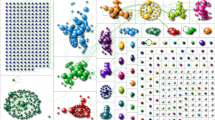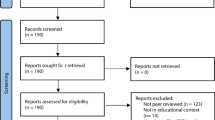Abstract
The launch of ChatGPT has caused a storm of reactions and debates in the academic community. These ongoing conversations have elicited mixed responses of enthusiasm, dissatisfaction, and apprehension among stakeholders in the academic spaces. However, student voices are yet to be heard. This paper analyses student responses to an opinion piece about ChatGPT published in The New York Times. Using the Theory of Reasoned Action, we interpreted students’ perceptions and dispositions towards ChatGPT. We analyzed how students’ beliefs, personal experiences with ChatGPT, and social expectations influenced their stance on adopting or banning ChatGPT in U.S. schools. We found that students perceived ChatGPT to be a valuable tool to support learning. However, they have several concerns about the potential for cheating, misinformation, and issues of fairness related to the use of ChatGPT.
Access this chapter
Tax calculation will be finalised at checkout
Purchases are for personal use only
Similar content being viewed by others
References
Kocaballi, A.B.: Conversational AI-Powered Design: ChatGPT as Designer, User, and Product. (February 2023) (2023). . Retrieved from http://arxiv.org/abs/2302.07406
Tlili, A., et al.: What if the devil is my guardian angel: ChatGPT as a case study of using chatbots in education. Smart Learn. Environ. 10(1), 15 (2023). https://doi.org/10.1186/s40561-023-00237-x
Ajzen, I., Fishbein, M.: A Bayesian analysis of attribution processes. Psychol. Bull. 82(1975), 261–277 (1975). https://doi.org/10.1037/h0076477
Dolores, A., Ajzen, I.: Predicting and Changing Behavior: A Reasoned Action Approach. Prediction and Change of Health Behavior: Applying the Reasoned Action Approach, pp. 3–21. Lawrence Erlbaum Associates, Mahwah, NJ (2007)
Arastoopour Irgens, G., Eagan, B.: The foundations and fundamentals of quantitative ethnography. In: Damşa, C., Barany, A. (eds.) Advances in Quantitative Ethnography: 4th International Conference, ICQE 2022, Copenhagen, Denmark 15–19 Oct 2022, Proceedings, pp. 3–16. Springer Nature Switzerland, Cham (2023). https://doi.org/10.1007/978-3-031-31726-2_1
Conner, M., Sparks, P.: Ambivalence and Attitudes. Eur. Rev. Soc. Psychol. 12(1), 37–70 (2002). https://doi.org/10.1080/14792772143000012
Fishbein, M.: A behavior theory approach to the relations between beliefs about an object and the attitude toward the object. In: Funke, U.H. (ed.) Mathematical Models in Marketing, pp. 87–88. Springer, Berlin, Heidelberg (1976). https://doi.org/10.1007/978-3-642-51565-1_25
Jalilian, F., Allahverdipour, H., Moeini, B., Moghimbeigi, A.: Effectiveness of anabolic steroid preventative intervention among gym users: applying theory of planned behavior. Health Promot Perspect 1(1), 32–40 (2011). https://doi.org/10.5681/hpp.2011.002
Javadi, M., Kadkhodaee, M., Yaghoubi, M., Maroufi, M., Shams, A.: Applying theory of planned behavior in predicting of patient safety behaviors of nurses. Materia Socio Medica 25(1), 52 (2013). https://doi.org/10.5455/msm.2013.25.52-55
King, M.R.: A conversation on artificial intelligence, chatbots, and plagiarism in higher education. Cell. Mol. Bioeng. 16(1), 1–2 (2023). https://doi.org/10.1007/s12195-022-00754-8
Marlo, M.: ChatGPT and the Death of Education. Harvard Independent. https://harvardindependent.com/2023/02/chatgpt-and-the-death-of-education/ (2023). Retrieved 3 May 2023
Marquart, C.L., Hinojosa, C., Swiecki, Z., Eagan, B., Shaffer, D.W.: Epistemic Network Analysis (Version 1.7. 0) [Software] (2018). https://app.epistemicnetwork.org/login.html
Pang, Bo., Lee, Lillian: Opinion mining and sentiment analysis. FNT Inform. Retrieval 2(1–2), 1–135 (2008). https://doi.org/10.1561/1500000011
Saldana, J.: The Coding Manual for Qualitative Researchers. The Coding Manual for Qualitative Researchers, pp. 1–440. https://www.torrossa.com/en/resources/an/5018667 (2021). Retrieved 1 May 2023
Evenstone, A.L.S., Irgens, G.A., Collier, W., Swiecki, Z., Ruis, A.R., Shaffer, D.W.: In search of conversational grain size: modeling semantic structure using moving stanza windows. J. Learn. Anal. 4(3), 123–139 (2017)
Thomas, D.R.: A general inductive approach for analyzing qualitative evaluation data. Am. J. Eval. 27(2), 237–246 (2006). https://doi.org/10.1177/1098214005283748
Thompson, K.: Programming techniques: regular expression search algorithm. Commun. ACM 11(6), 419–422 (1968). https://doi.org/10.1145/363347.363387
Yadav, R., Pathak, G.S.: Determinants of consumers’ green purchase behavior in a developing nation: applying and extending the theory of planned behavior. Ecol. Econ. 134, 114–122 (2017). https://doi.org/10.1016/j.ecolecon.2016.12.019
Yang, M.: New York City schools ban AI chatbot that writes essays and answers prompts. The Guardian. https://www.theguardian.com/us-news/2023/jan/06/new-york-city-schools-ban-ai-chatbot-chatgpt (2023). Retrieved 8 Apr 2023
Students using ChatGPT to cheat, professor warns. Retrieved May 3, 2023 from https://nypost.com/2022/12/26/students-using-chatgpt-to-cheat-professor-warns/
Shaffer, D.W.: Quantitative Ethnography. Cathcart Press, Madison, WI (2017)
Author information
Authors and Affiliations
Corresponding author
Editor information
Editors and Affiliations
Rights and permissions
Copyright information
© 2023 The Author(s), under exclusive license to Springer Nature Switzerland AG
About this paper
Cite this paper
Famaye, T., Adisa, I.O., Irgens, G.A. (2023). To Ban or Embrace: Students’ Perceptions Towards Adopting Advanced AI Chatbots in Schools. In: Arastoopour Irgens, G., Knight, S. (eds) Advances in Quantitative Ethnography. ICQE 2023. Communications in Computer and Information Science, vol 1895. Springer, Cham. https://doi.org/10.1007/978-3-031-47014-1_10
Download citation
DOI: https://doi.org/10.1007/978-3-031-47014-1_10
Published:
Publisher Name: Springer, Cham
Print ISBN: 978-3-031-47013-4
Online ISBN: 978-3-031-47014-1
eBook Packages: Computer ScienceComputer Science (R0)




